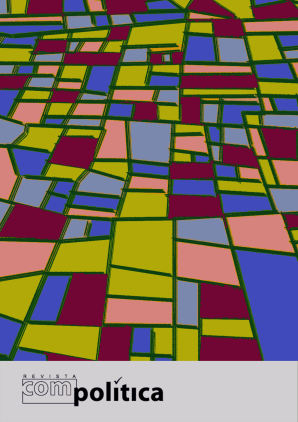Public sphere ruptures
The linkage between the actors, the digital ecosystem, and the radicalization [Interview with Simone Chambers]
DOI:
https://doi.org/10.21878/compolitica.2023.13.2.655Keywords:
democracy, public sphere, digital ecossystem, radicalizationAbstract
Simone Chambers is a Professor and Chair of the Department of Political Science at the University of California Irvine. She is a specialist in democracy studies, and her concerns are deliberative democracy, public reason, the digital public sphere, rhetoric, and civility. Among her main works, we can cite the article Bad Civil Society, with Jeffrey Kopstein (Political Theory, 2001); the book Alternative Conceptions of Civil Society, with Will Kymlicka (Princeton University Press, 2002); the book Deliberative Democratic Theory (Annual Review of Political Science, 2003); the book Reasonable Democracy: Jürgen Habermas and the Politics of Discourse (Cornell University Press, 2018); the chapter An Ethics of Public Political Deliberation: The Case of Rhetoric (The Oxford Handbook of Rhetoric and Political Theory - Oxford University Press, 2022); and the book Contemporary Political Theory (Polity 2023).
In this interview, she talks about the importance of thinking about the public sphere in this democratic crisis context. She also explains how considering disinformation and its asymmetry can help us better understand some public sphere ruptures. Besides that, Professor Chambers makes a distinction between partisanship, polarization, and radicalization.
It is a fact that an active and free public sphere will produce differences of opinion, multiplicities, and conflicting narratives, however, she highlights the need to value pluralism and inclusion from a critical perspective. A further concern is the potential dangers of new digital ecosystems that weaken democracy. For her, we should focus on political actors who have tried to undermine democracy.
References
CHAMBERS, Simone. Balancing Epistemic Quality and Equal Participation in A System Approach to Deliberative Democracy. Social Epistemology, Abingdon, v. 31, n. 3, p. 266-276, 2017. DOI: 10.1080/02691728.2017.1317867.
CHAMBERS, Simone. Contemporary Political Theory. Cambridge: Polity, 2023.
CHAMBERS, Simone. Deliberative Democratic Theory. Annual Review of Political Science, San Mateo, CA, v. 6, n. 1, p. 307-326, 2003. DOI: 10.1146/annurev.polisci.6.121901.085538.
CHAMBERS, Simone; KYMLICKA, Will (ed.). Alternative Conceptions of Civil Society. Princeton, NJ: Princeton University Press, 2002.
CHAMBERS, Simone. Reasonable Democracy. Ithaca, NY: Cornell University Press, 2018.
CHAMBERS, Simone. Truth, Deliberative Democracy, and the Virtues of Accuracy: Is Fake News Destroying the Public Sphere? Political Studies, Thousand Oaks, CA, v. 69, n. 1, p. 147-163, 2021. DOI: 10.1177/00323217198908.
CHAMBERS, Simone. An Ethics of Public Political Deliberation: The Case of Rhetoric. In: GAONKAR, Dilip Parameshwar; TOPPER, Keith (ed.). The Oxford Handbook of Rhetoric and Political Theory. Oxford: Oxford University Press, 2022. DOI: 10.1093/oxfordhb/9780190220945.001.0001.
CHAMBERS, Simone; KOPSTEIN, Jeffrey. Wrecking the Public Sphere: The New Authoritarians’ Digital Attack on Pluralism and Truth. Constellations, Hoboken, NJ, 2022. DOI: 10.1111/1467-8675.12620.
CHAMBERS, Simone; KOPSTEIN, Jeffrey. Bad Civil Society. Political Theory, Thousand Oaks, CA, v. 29, n. 6, p. 837-865, 2001.
CHAMBERS, Simone; KOPSTEIN, Jeffrey. Revisiting ‘Bad Civil Society’. HistPhil, s. l., 2021. Disponível em: https://histphil.org/2021/05/04/revisiting-bad-civil-society/. Acesso em: 6 jul. 2022.
WILLIAMS, B. Truth and Truthfulness: An Essay in Genealogy. Princeton, NJ: Princeton University Press, 2002.
Downloads
Published
How to Cite
Issue
Section
License
Copyright (c) 2023 Bruna Silveira de Oliveira

This work is licensed under a Creative Commons Attribution-NonCommercial 4.0 International License.
Autores mantém os direitos autorais e concedem à revista o direito de primeira publicação, com o trabalho simultaneamente licenciado sob a Creative Commons Attribution License que permite o compartilhamento do trabalho com reconhecimento da autoria do trabalho e publicação inicial nesta revista.



